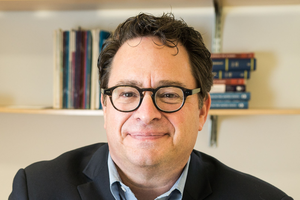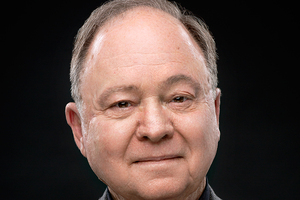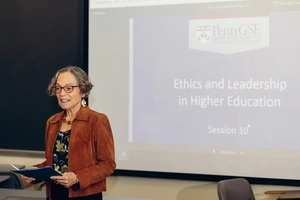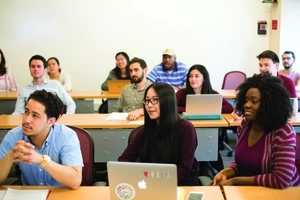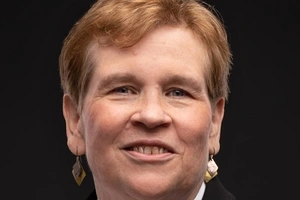Faculty Expert
The challenge of faculty burnout in American colleges remains pressing, especially for tenure-track professors, as highlighted by experts in higher education. The COVID-19 pandemic exacerbated delays in research, strained relationships with colleagues, and added stress for faculty managing children’s academic setbacks. Institutions that failed to support faculty during the transition to online teaching now face damaged trust and morale. Kevin Gannon, director of the Center for the Advancement of Faculty Excellence at Queens University of Charlotte, warns that many faculty members are in "pre-burnout" and without meaningful intervention, they risk full burnout. Gannon advocates for addressing structural issues rather than offering symbolic gestures like wellness workshops.
Penn GSE Professor of Practice Julie E. Wollman, a two-time college president, emphasizes the need for stronger, more effective mentoring programs to support tenure-track faculty. She suggests that mentors be carefully matched, held accountable, and equipped to provide feedback on research and grant proposals. Additionally, Wollman highlights the importance of listening to faculty and involving them in decision-making processes. Her approach calls for administrators to demonstrate genuine care by building relationships, attending faculty presentations, and offering tailored support.
Faculty burnout is a top concern, as 62 percent of tenure-track professors in a recent Chronicle of Higher Education survey prioritized reducing burnout and improving morale. However, many colleges rely on temporary solutions, like daylong workshops, instead of addressing underlying structural issues. Margaret W. Sallee, associate professor at the University at Buffalo, argues that faculty need more staff and infrastructure support to manage their workloads, which have increased significantly due to institutions relying on adjunct professors. This leaves tenure-track faculty with additional responsibilities, such as service, leadership, and curriculum development.
Adrianna Kezar, director of the Pullias Center for Higher Education at the University of Southern California, echoes these concerns, noting that expectations for tenure-track faculty have risen sharply. She advocates for using respected faculty members to build peer support networks, rather than hiring external consultants.
Experts agree that improving faculty morale requires a series of small, intentional actions. These include clearer communication about tenure expectations, increased staffing, and fostering a supportive environment through strong mentorship. Rather than seeking quick fixes, institutions need to make sustained efforts to address faculty burnout and ensure long-term support for their academic staff.
Media Inquiries
Penn GSE Communications is here to help reporters connect with the education experts they need.

